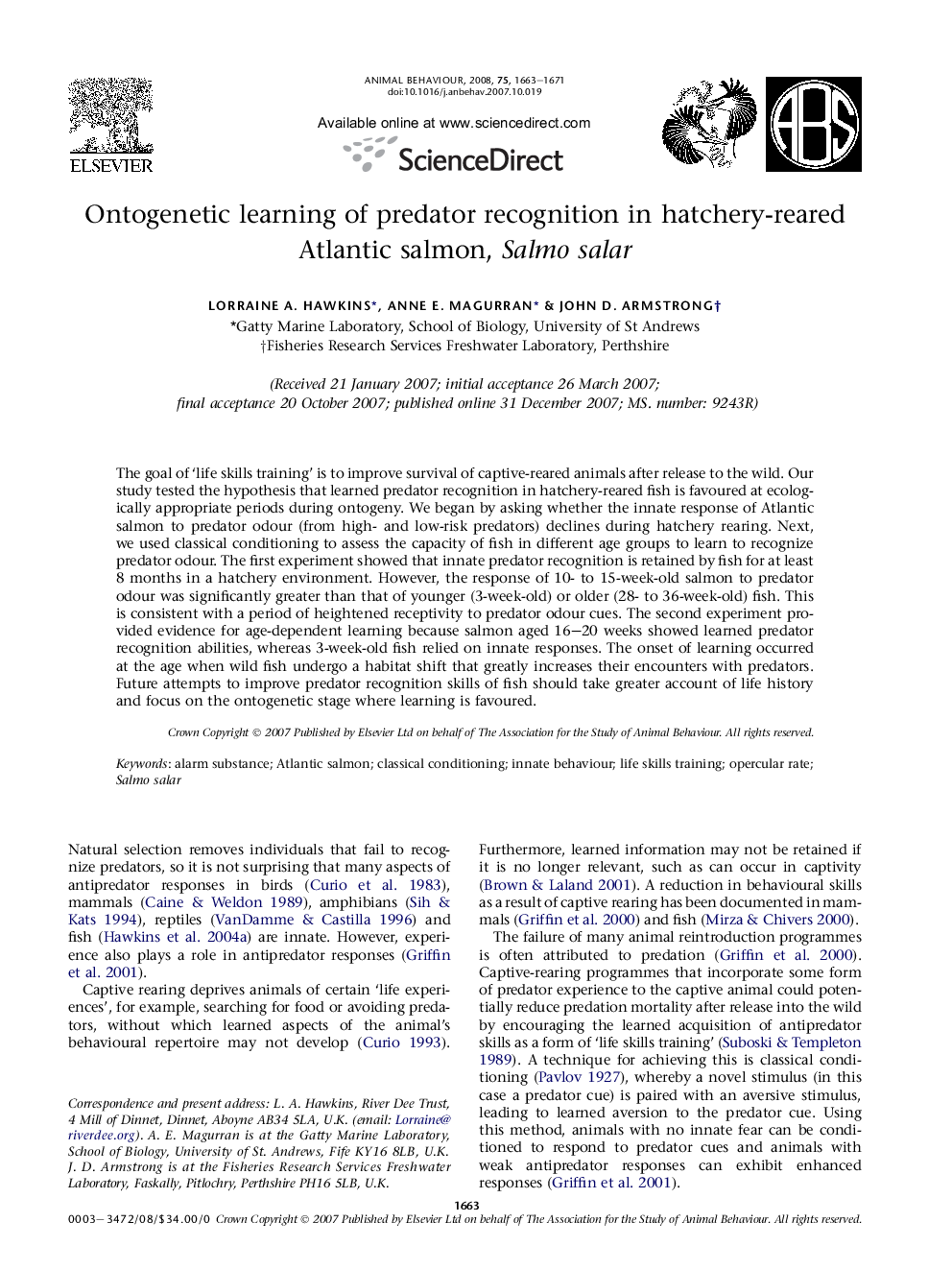| کد مقاله | کد نشریه | سال انتشار | مقاله انگلیسی | نسخه تمام متن |
|---|---|---|---|---|
| 2417515 | 1104321 | 2008 | 9 صفحه PDF | دانلود رایگان |

The goal of ‘life skills training’ is to improve survival of captive-reared animals after release to the wild. Our study tested the hypothesis that learned predator recognition in hatchery-reared fish is favoured at ecologically appropriate periods during ontogeny. We began by asking whether the innate response of Atlantic salmon to predator odour (from high- and low-risk predators) declines during hatchery rearing. Next, we used classical conditioning to assess the capacity of fish in different age groups to learn to recognize predator odour. The first experiment showed that innate predator recognition is retained by fish for at least 8 months in a hatchery environment. However, the response of 10- to 15-week-old salmon to predator odour was significantly greater than that of younger (3-week-old) or older (28- to 36-week-old) fish. This is consistent with a period of heightened receptivity to predator odour cues. The second experiment provided evidence for age-dependent learning because salmon aged 16–20 weeks showed learned predator recognition abilities, whereas 3-week-old fish relied on innate responses. The onset of learning occurred at the age when wild fish undergo a habitat shift that greatly increases their encounters with predators. Future attempts to improve predator recognition skills of fish should take greater account of life history and focus on the ontogenetic stage where learning is favoured.
Journal: Animal Behaviour - Volume 75, Issue 5, May 2008, Pages 1663–1671